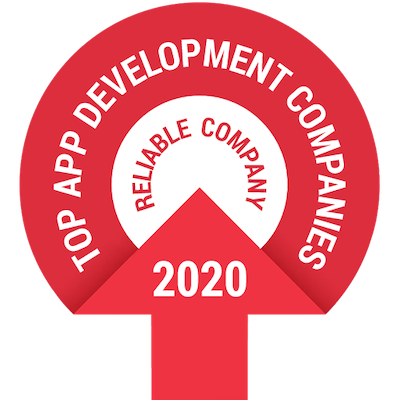
How to Improve Employee Retention During the Great Resignation
How can you improve employee retention?
This question has become extremely important ever since just about every company started working remotely.
Apparently, it’s more difficult to engage remote employees and give them reasons to stick around at your team.
So, what can you do to improve employee retention?
We bring you answers to this question from David Siegel, CEO of Meetup. He discusses what he’s learned about employee retention in a hybrid environment and shares stories about how Meetup successfully took on this challenge. This blog post is written based on episode 62 of the Level-up Engineering podcast hosted by Karolina Toth.
This post covers:
- Takeaways from the pandemic
- Personal interaction
- Community
- Introspection
- Improving employee retention and motivation
- Avoid surprises
- Engage by storytelling
- Don’t go overboard
- Communication in a hybrid environment
- Supporting leaders at Meetup
- 360 surveys
- Employee surveys
- Manager workshops
- Management meetings
- Improving work-life balance
- Forcing mechanisms
- Separate work
- Building a community
- Do it online
- Do it offline
- Communicating your mission right
- Clear mission
- Company values
- Meetup’s values
- About David Siegel
What are your biggest takeaways from the pandemic?

Personal interaction
The pandemic highlighted the value of personal interaction. Zoom is a great tool, but online calls don’t fully replace in-person communication.
It seems to me that the appreciation for meeting in person has increased, but it won’t get everyone back into the office five days a week, especially in tech. We can count on hybrid teams becoming the norm all over the world as the direct result of the pandemic.
Community
The need for community is in our DNA. It has been since humans became hunters and gatherers and needed a community to survive. Working alone has never been a recipe for success.
We tend to take community for granted, but many people don’t have one. The level of isolation during the pandemic made many of us realize how much we love having our coworkers around and the wider community that exists at our workplace.
Introspection
Getting stuck at home gives you an opportunity for introspection, to think about whether your work is meaningful. Mission and meaning have always been more important for Millennials and Gen-Zers compared to previous generations. The pandemic made this more important for everyone than it’s ever been.
This is a positive outcome, because this pushes companies to focus more on their mission and on making the world a better place.
What can leaders do to motivate their teams and improve employee retention?

Avoid surprises
A manager’s job is to avoid surprising their manager and their employees as well. Creating an environment where people see most of the things coming that are relevant for them is a win.
You need to get in the mindset of communicating company-level decisions as clearly as possible. Make the reasoning behind your decision as clear as possible, and don’t stop at the most direct implications of your decision. Also make sure to put effort into building a culture of transparency.
Storytelling
The job of the leader is to communicate the impact of the work that every single person does at your company, so they gain a deeper appreciation for their work. Master storytelling to become more effective when talking about the company’s mission. Specific examples are powerful tools.
Story from Meetup
I received an email a few days ago from a Meetup organizer. The subject line said, ”Thanks for Meetup.”
The email read, "David, I'm grateful for Meetup. My mom is in the hospital, and she's probably going to die. Because of all the great friends I've made through running my groups, I'm not alone. People come over to support me at this difficult time. Thank you!"
This is a real story. Every few weeks, I get a few powerful emails like this. As a leader, you need to connect with your customers, and you need to find ways to tell these stories to your team, so they connect with the customers as well.
When I came to Meetup, people questioned whether I was aligned with the company’s mission or if I was just chasing revenue. I kept telling these people the same message, "Revenue gives oxygen to our mission. The more revenue we have, the more we can reinvest in the business."
Some people that were anti-business only cared about helping people. Some of them even decided to quit because they thought that I was too business-oriented. That’s okay, because I know that it’s important for employees to be able to identify with what their company stands for.
Don’t overdo it
There are engineering leaders who believe that their job is to support everything their employees want to do. Managers and leaders have to put the business first. If an employee asks for a raise, the leader’s job isn’t just to hand out that raise, but to consider whether it makes sense for the business.
Treating employees well is a good investment for the business. On the other hand, you can’t make irresponsible decisions. Management is about figuring out what's right for the business and making sure it’s aligned with what's right for the employees.
Before I joined Meetup, the company was spending over $100,000 on a holiday party. It was great for the employees, but it was also irresponsible, as the company was losing $18 million a year.
How should employees in a hybrid team communicate their needs to their managers?

The best thing an employee can do is to be as transparent, honest, and forthcoming about their concerns and frustrations as possible.
At one time, one of my employees told me that he was about to start looking for another job, and he shared the reasons behind that decision. I was amazed by his honesty. I wanted to put it on a pedestal, so I asked him, and he was okay with me highlighting this in front of the entire company.
It’s great to know when someone is leaving ahead of time, because maybe we can find a different solution, or we can prepare for that person transitioning out. You have to create psychological safety, so everyone knows that there are no negative implications to them speaking their mind. Leaders can build trust in a wider context by facilitating the team around them to become transparent as well.
How do you support the leaders at Meetup in a hybrid environment?

360 feedback
We provide all employees including all leaders with 360 degrees of feedback. Everybody receives feedback from their manager, their peers, and their direct reports in the case of leaders. We have performance reviews twice a year.
Employee surveys
It’s also a part of our feedback culture that four times a year, we do an anonymous employee engagement survey and a manager engagement survey. The idea is to gather feedback about what’s working, what isn’t working, and how we could improve. We always share the results internally, as transparency is one of our core values.
Manager workshop
We used to have a biweekly event, where a different manager in the company steps up and teaches the other managers about an area that they’re an expert at. Someone might talk about giving feedback, another time we might hear a talk about self-managed teams. It’s a 20-minute talk with Q&A.
Management meeting
We have a separate manager meeting biweekly. Every leader shows up, and we all share our challenges, experiences, what's working well, and what's not working in our teams. We talked about managing for happiness during the pandemic, or anything else that our leaders were doing.
How can you improve your work-life balance in home office?

We all have too much work to do. It's easy to try to avoid feeling overwhelmed by working longer hours, but it’s ill-advised, as it can hurt your work-life balance.
Forcing mechanisms
I'm obsessed with the concept of forcing mechanisms. The idea behind a forced mechanism is to reward yourself for doing your work, but you only reward yourself when the work is done.
For example, exercising every day gives me energy and peace, but it takes time and effort to do. I happen to enjoy showering, just because I like to feel clean. So I set the rule for myself that I’ll only take a shower after I have exercised and had a healthy breakfast.
This forces me to do something important before I’d do something that I enjoy doing. This way, I push myself to go out for a bike ride, take the treadmill, or hit the weights every morning.
Think up things that you enjoy doing but you could skip unless you do something for yourself.
Separate work
I'm lucky to have a space in my house that I use as an office. This way I don’t take my laptop and work into the kitchen, the bedroom, or anywhere else. It’s in a separate room from the rest of the house, so it doesn’t pull me back in when I’m spending time with my family.
You need to be disciplined and draw a line between work and life to keep the balance.
How can you build a community to improve employee retention in a hybrid team?

I believe that the best way to make sure your employees stick around is to build a strong community. We’ve had some people who joined Meetup during the pandemic, and they quit after 18 months. In that time period, they’d never even had a chance to go to our office.
People who don’t have personal connections to their colleagues are more likely to leave your company. They’re just sitting in front of their laptop, not going out for drinks after work, not going for coffee or lunch during the day, and not feeling the same energy and connection during collaborative work. This is why I’m not a fan of fully remote teams.
It's hard to retain employees who never show up in person and don't have any personal connection within the company. You can build trust in a remote setting and relationships as well, but it's more difficult to do online. I consider this the biggest contributor to the Great American Resignation.
Online community building
Employee Resource Groups
I'm a fan of ERGs or Employee Resource Groups; they’re a great tool for leaders to build a community. The concept is to create a group of people who have similar life experiences in some dimension. We give each group a budget so they can create events and build a strong community.
We have three different ERGs at Meetup.
One is called Pride, with people in the LGBTQ community or people who support that community. The second ERG is for people of color, and the third is for women in Meetup.
Slack groups
We also have different Slack groups. For example, we have a parents group where people can post pictures of their kids or share events with each other. We also have Slack groups for different religions within Meetup.
Our Slack communities can get a budget too, so we aren’t just asking them to build a community with a lot of work, but we provide them more opportunities to build a community within the organization.
Offline community building
Utilize the office for collaboration
You have to take care of yourself first in order to be able to help take care of others. Focusing on yourself may seem like selfish behavior, but taking care of yourself is necessary to be able to afford being selfless. You can apply this to parenting as much as you can to management.
It also applies to the connection between distributed teams and community. Hybrid work gives people an opportunity to take better care of themselves by freeing up time they’d spend traveling. It allows for a better work-life balance, especially for primary caregivers of children, and it helps employees avoid burnout.
An office is often a noisy environment, so working from home allows you to focus on your work more. On the other hand, working from home also makes collaboration more difficult. You need to balance these.
At Meetup, we currently have people come to the office two days a week, unless they have special circumstances, like caring for an elderly person, health issues, etc. I believe hybrid is helping us build the community, because any time you're present in person, you're spending more of your time in collaborative workspaces strengthening your relationships.
We’re currently working on our new office space. The idea is to create more conference rooms and one-on-one meeting rooms to replace the large open spaces with people sitting at desks. We intend to take advantage of the time in the office to improve collaboration.
Gather for food
We have an event called Eatup. We get everyone a free lunch weekly or biweekly and have everyone get together and eat together at picnic tables. At these events, you see engineers hanging out with marketing people or engineers across different teams building relationships.
We also have an event called Treatup. This is a similar event, but we get treats for everyone weekly or biweekly at 3:00 PM to get everyone together.
How do you communicate your company’s mission to improve employee retention?

Clear mission
People often quit their jobs over the lack of meaning or the lack of mission. Figure out how the world becomes a better place due to the work of your team and your company. This will help you retain your employees.
The biggest reason people stay at Meetup is our mission. We aim to cure the loneliness epidemic all over the world. Our job is to help our users build connections, and that resonates with a lot of people.
Another example may be Investopedia, where we aimed to educate the world about finance so they avoid making financial mistakes and come out ahead in the long run. It may be less meaningful overall, but it’s still a clear mission for your company and employees.
This level of meaning gives Meetup an unfair competitive advantage when it comes to hiring top talent. Some of our people turn down jobs at Facebook, Apple, and other great tech companies because of the mission that Meetup has. Meaning helps you hire, retain, and motivate great people; all of these are parts of your job as a leader.
Remember, the same mission doesn't resonate with every person.
For example, some people are driven by learning as much as possible. In this case, if part of a company's mission is to help to facilitate learning and personal growth, then emphasize that component of the mission. You can put the emphasis on any part of your mission that a person may be driven by.
Company values
Another key to employee retention is creating company values. We have six values at Meetup, and we use them for recruiting, performance reviews, and a lot of different areas.
When I joined Meetup, I was taking it over from the company’s founder, so it was essential to show respect for the work he had done. I couldn’t just throw away the 23 values the company had, brainstorm a new set of values myself, and expect everyone to use those in every aspect of the work we do.
In my opinion, 23 values were too many, so it diminishes their meaning. On top of that, HR was using a different set of values in recruiting than what we were building the daily work around. It was a mess.
I intended to become a part of Meetup and understand the culture first. I wanted to have the culture emerge from the company, rather than dictate what it should be.
We ended up creating a group of people ranging from junior to senior employees from every discipline in the company. The only direction I gave them was that we can’t have more than six values. We aimed for near unanimity that each value reflects who we are, but also an aspiration of how we could be better.
A software engineer volunteered to lead this group. They met many times discussing different ideas about what was and what wasn’t important.
When they arrived at a conclusion, they presented it to me. We ended up rolling out that set of values with minor changes in the wording about six months after I joined the company. I wanted to take the time because we didn’t want to change them again anytime soon, and we haven’t had to in the three years since we’ve been using them.
Meetup’s values
1. Trust and transparency
We always aim to be as transparent as possible. We share our financials with the entire company, and they all have stock options. We have a weekly all-hands meeting involving every employee.
We use transparency to build trust.
2. Focus on impact
People often fail by trying to prioritize too many goals and losing focus in the process. Focus gives you impact. The more focused you are, the more impact you have.
3. Invite change
We’re not looking to simply accept change, or begrudgingly tolerate it, but to invite it. We want to work with people who understand that change helps as we thrive to become more successful.
4. Step up
We want our colleagues to be proactive and not consider their job a box there is no way out of. When you’re looking for a promotion, for example, you want to go from manager to director, find out what director represents, and start acting like that.
We give an award every month with extra money to thank our colleagues who stepped up in the most meaningful ways.
5. Elevate people
It’s our people who make everything happen at Meetup. We’re constantly looking for ways to elevate our people. It’s a great investment.
6. Lead with integrity
Everything that we do at Meetup has to have an integrity element. If we can’t point out integrity in what we’re doing, we won’t even bother doing it.
About David Siegel
David started his career at DoubleClick in the late 90s, then climbed the leadership ladder moving forward. He’s worked at companies like 1800 Flowers, a large e-commerce business, became president at Seeking Alpha, a large financial site, then moved to Investopedia as the CEO until they sold the company. That’s when he got an opportunity to become the first outside CEO of Meetup.
He’s recently written a book called Decide and Conquer: 44 Decisions that will Make or Break All Leaders. He also teaches entrepreneurship at Columbia University.
Let's build awesome things together 🚀
At Apex Lab, we're experts in end-to-end digital product development. Our remote-first company operates with a flexible schedule, allowing us to help clients tackle difficult challenges worldwide.
Want us to build your next idea or upgrade your existing product? Our experts cannot wait to work with you. Get in touch with us and let's make this happen. 💡🚀










